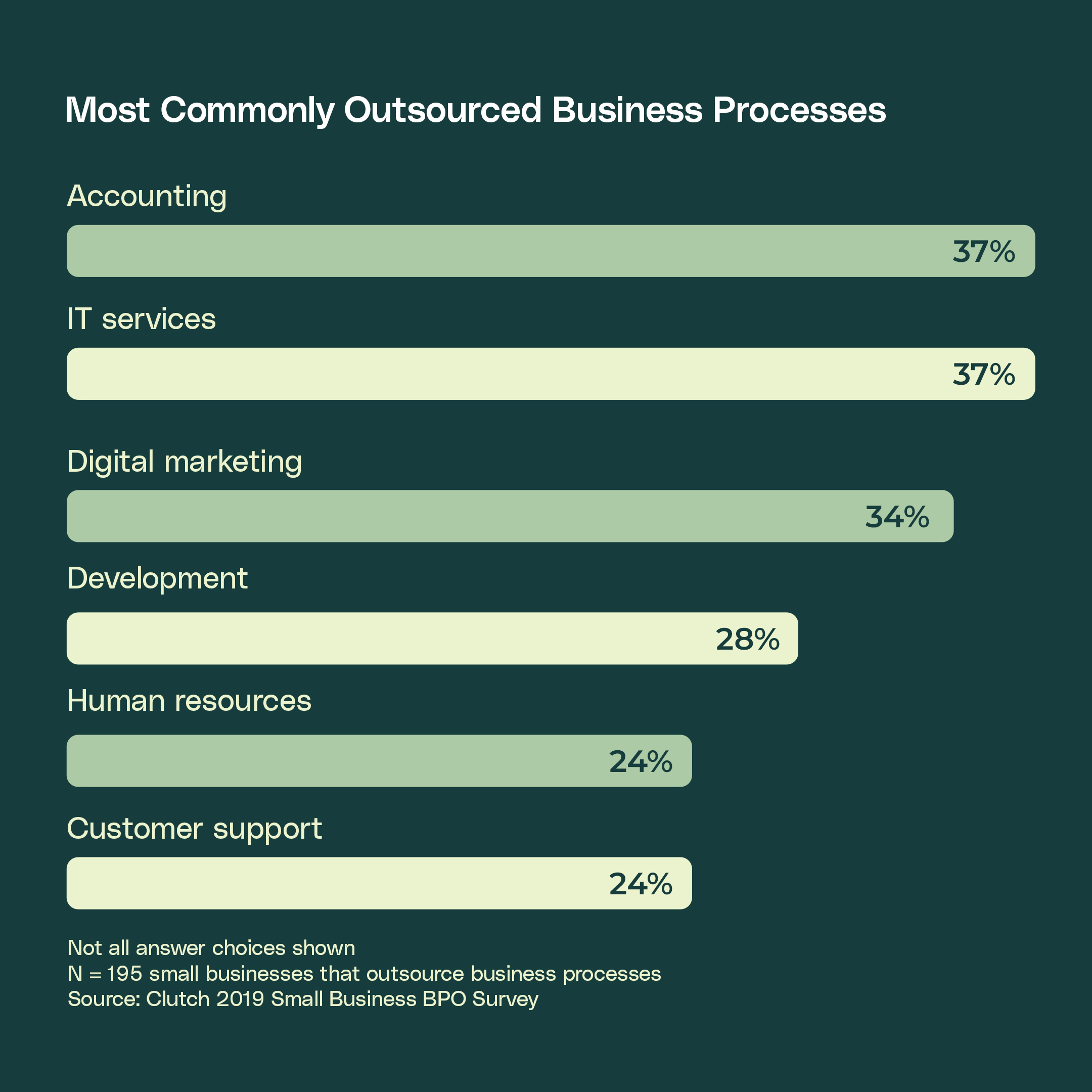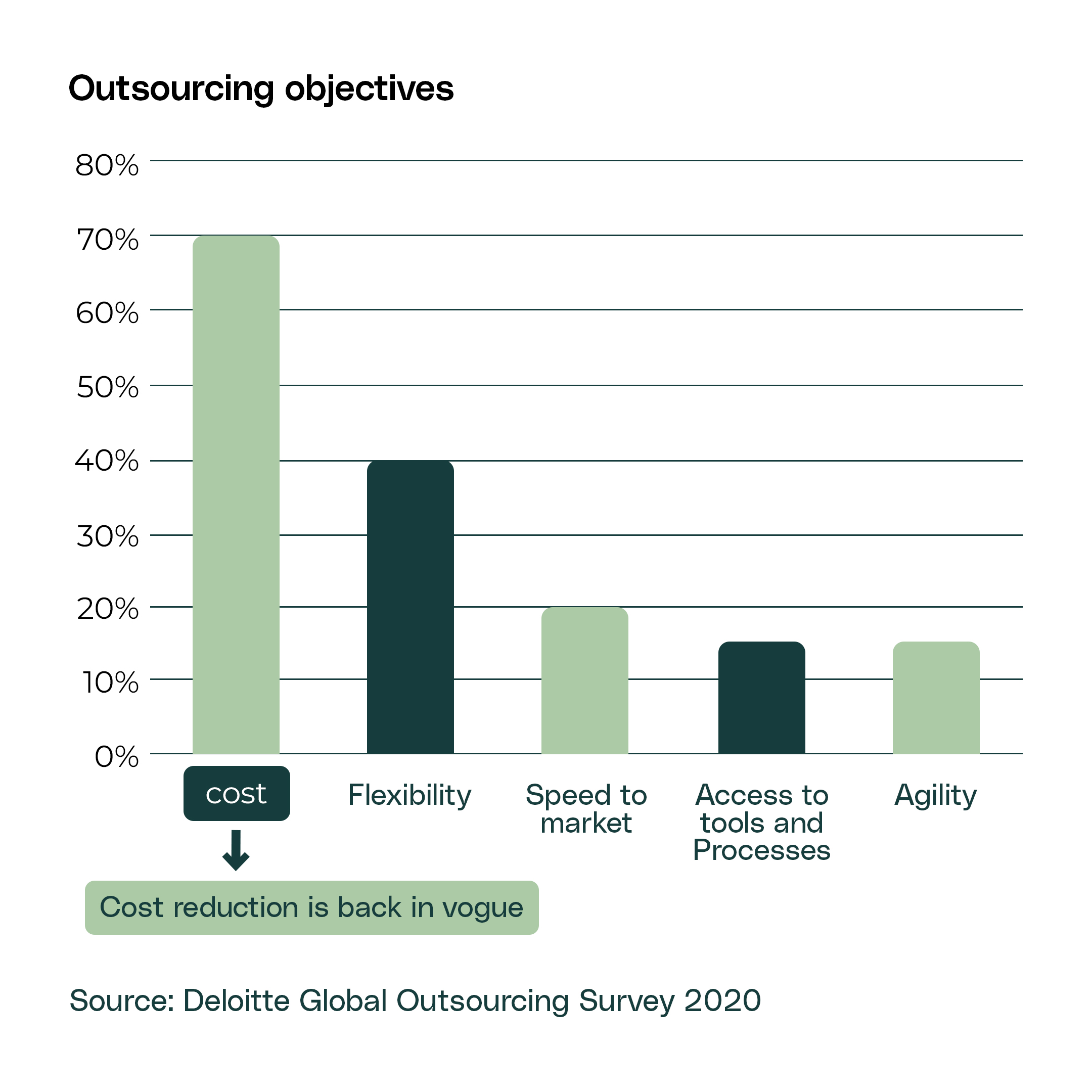Is Outsourcing Really Worth It? Here’s a Complete Guide for Businesses Looking to Scale
Discover the advantage of outsourced services and how they help businesses save time, cut costs, and focus on growth in this comprehensive guide.

Have you ever felt like there’s just too much on your plate at work? Endless tasks, looming deadlines, and not enough hands to get everything done—it’s exhausting. Many businesses struggle to keep up with piles of work while staying focused on growth. It’s a balancing act that’s hard to master, and that’s where outsourcing steps in.
By delegating some of your workload to experts, you free up time and resources to focus on what truly matters which is building your business. But what exactly is outsourcing, and how can it work for you? Let’s break it all down, so you can decide if it’s the right step for your company.
What Is Outsourcing?

Outsourcing is when a company hires an external party to handle tasks, processes, or projects that could be done in-house. These external providers are often experts in their fields, which means they can perform the job efficiently and at a high standard. This could range from payroll processing to customer service, IT support, or even content creation.
Think of outsourcing as a way to focus on your strengths while letting someone else handle the rest. For example, if managing your social media eats up too much time, outsourcing it to a marketing agency can take out one task on your calendar so you can focus on growing your product line.
Outsourcing vs. Offshoring
While outsourcing and offshoring are closely related, they’re not quite the same. Outsourcing is when you assign tasks to a third party, regardless of where they are located. Offshoring is a specific type of outsourcing where the work is assigned to a provider in another country, often to save costs or access specialized skills.
For instance, a U.S. company hiring a local payroll service provider is outsourcing. However, if that provider is based in another country, it’s considered offshoring.
The Benefits of Outsourcing

More than just saving money, outsourcing is a smart business move that can unlock new opportunities. Here are its key benefits explained in detail:
1. Lower Costs Without Sacrificing Quality
Hiring and training a full-time team for specialized tasks can get expensive. Outsourcing allows you to tap into experienced professionals without the added expense of salaries, benefits, and office space. For example, outsourcing IT support lets you pay only for the services you need, rather than maintaining an entire department and purchasing advanced software and equipment that you might not use frequently.
2. Access to Specialized Expertise
Outsourcing connects you with professionals who have deep expertise in their fields. Whether it’s digital marketing, software development, or HR, these experts bring knowledge and skills that might be hard to find or too costly to develop in-house. This ensures you get the best results without a steep learning curve.
3. More Time for Core Operations
Managing repetitive or non-core tasks can eat into your team’s productivity. By outsourcing these tasks, your in-house team can focus on what they do best—whether it’s designing innovative products, building client relationships, or driving business growth.
4. Flexibility to Scale Up or Down
If your business has seasonal spikes, you can quickly ramp up operations without the hassle of hiring temporary staff. Similarly, you can scale down during quieter periods without layoffs or restructuring.
5. Faster Turnaround and Better Efficiency
Another advantage of outsourced services is that outsourcing providers often have streamlined processes and advanced tools that allow them to deliver results quickly. This means you can meet tight deadlines or launch projects faster without compromising quality.
Outsourcing Risks and Challenges
While outsourcing offers many benefits, it’s not without potential pitfalls. Understanding these risks helps you navigate them effectively.
1. Communication Gaps
Different time zones, languages, or communication styles can sometimes lead to misunderstandings. Clear and consistent communication is key to avoiding these hiccups.
2. Maintaining Quality Standards
When handing over tasks to an external team, there’s a chance the output may not align with your expectations. Establishing clear guidelines and regular check-ins helps maintain quality.
3. Data Security Issues
Sharing sensitive information with third-party providers can be risky. Always work with reputable companies that have strong data protection policies in place.
4. Hidden or Unexpected Costs
While outsourcing can save money, poorly written contracts or unexpected challenges might lead to unplanned expenses. Be sure to clarify all terms upfront.
5. Cultural Differences
Working with global providers can sometimes lead to differences in work styles or expectations. Taking time to understand and respect these differences can ease collaboration.
How to Choose the Right Outsourcing Company
Picking the right outsourcing partner can make all the difference. Here’s how to do it:
- Identify Your Needs
Be clear about what you want to outsource and the results you expect. This helps you find a provider with the right skills. - Research Thoroughly
Look for companies with good reputations, positive reviews, and experience in your industry. - Check Compatibility
Make sure the provider’s working style, values, and communication practices align with your team’s needs. - Ensure Data Security
Ask about their policies and certifications to ensure your sensitive information is safe. - Clarify Terms
Draft a detailed agreement covering costs, timelines, and deliverables to avoid misunderstandings.
Frequently Asked Questions About Outsourcing
What is outsourcing in simple words?
Outsourcing is when a company hires another company or individual to do specific tasks instead of doing them internally. It helps save time and money while accessing specialized skills.
What is an outsourcing service provider?
An outsourcing service provider is a company or individual that businesses hire to handle specific tasks or processes on their behalf. These providers specialize in areas like customer support, IT services, payroll, or marketing, offering expertise and resources that might not be available in-house.
What is the difference between outsourcing and offshoring?
Outsourcing is when tasks are handed to a third party, no matter where they’re located. Offshoring is a type of outsourcing where you delegate tasks to a provider in another country, often to cut costs.
What is the best example of outsourcing?
A company outsourcing customer service to a call center is a common example. This lets the company focus on other priorities while ensuring customers get support.
When should you consider outsourcing?
You should outsource when a task is outside your expertise, takes too much time, or can be done more efficiently and affordably by someone else. It’s especially helpful during periods of rapid growth or tight deadlines.
Who are the parties in outsourcing?
The two main parties in outsourcing are the client (the company outsourcing the work) and the provider (the external entity performing the task).
Outsource worry-free with Flexscale
Managing a growing business is no small feat, especially when everyday tasks start piling up. Outsourcing offers a way to streamline operations, access expert talent, and maintain focus on what truly drives your business forward. It’s more than a cost-saving tool—it’s a growth strategy that works.
Flexscale makes outsourcing seamless, connecting you to top-tier talent and giving you the freedom to focus on your big-picture goals. Ready to reclaim your time and see what’s possible? Let’s make it happen.
Turn payroll pressure into profit growth
Let Flexscale help you reclaim margins, unlock capacity, and focus on growth.
Get Started

.png)
.png)
.png)
